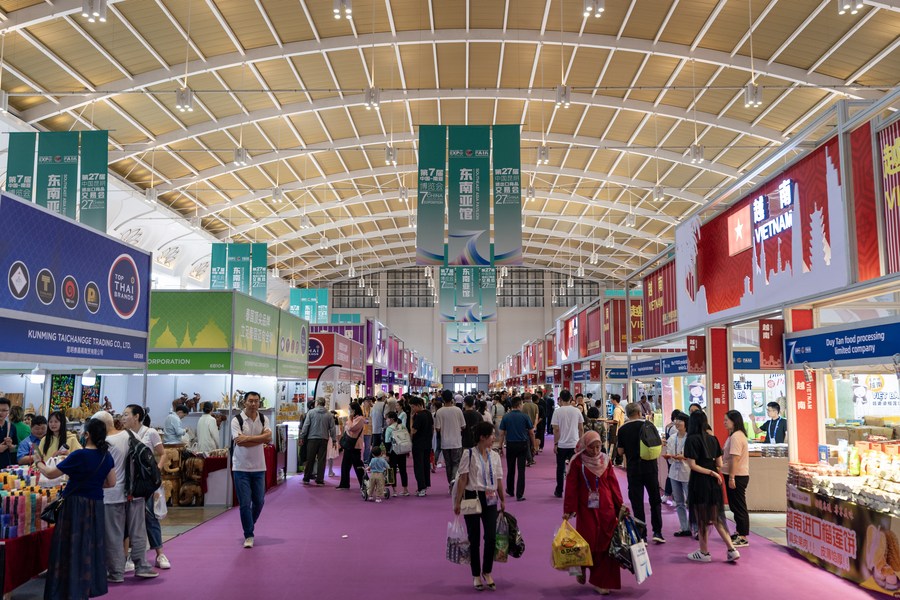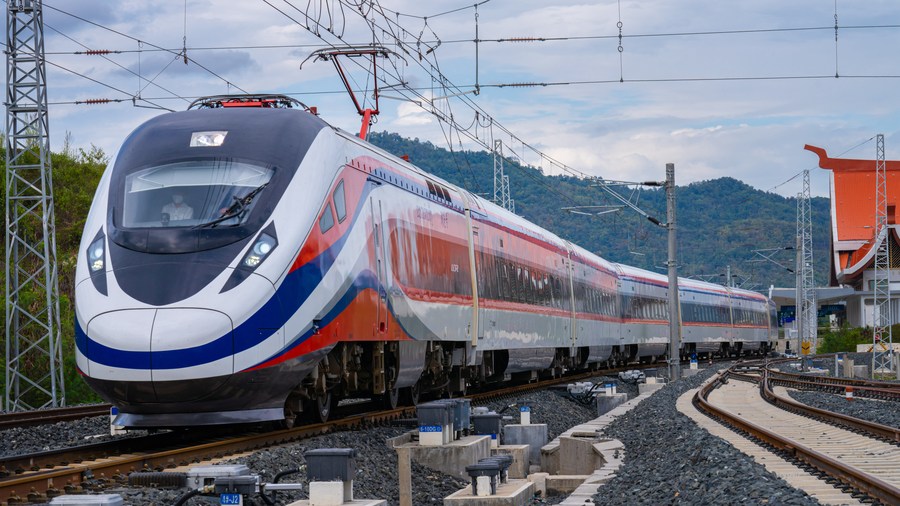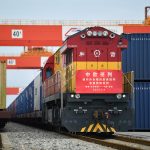* The ongoing China-South Asia Expo has attracted more than 30,000 exhibitors.
* The expo has witnessed the China-South Asia trade volume double in 10 years.
* Greater interconnectivity across the region has boosted investment.
The ongoing seventh China-South Asia Expo has attracted more than 30,000 exhibitors, representatives, and guests from 85 countries and regions to attend online and offline.
Themed “Solidarity and Coordination for Common Development,” the five-day expo has set up 15 exhibition pavilions, with various kinds of events, such as a cooperation forum and a business forum, scheduled to be held.
Over the past 10 years, the expo has witnessed closer ties between China and South Asia, with the trade volume between China and South Asian countries doubling.
When the first expo took place in 2013, the trade volume between China and South Asian countries amounted to less than 100 billion U.S. dollars, but the figure reached 197.4 billion U.S. dollars last year, with an average annual growth rate of 8.3 percent.

This photo taken on Aug. 16, 2023 shows a view of Southeast Asia Pavilion at the seventh China-South Asia Expo in Kunming, southwest China’s Yunnan Province. (Xinhua/Chen Xinbo)
Gem dealer Mohamed Rikas from Sri Lanka sensed business opportunities at the very first expo in 2013 and has attended every expo since then.
“I value China’s huge market and purchasing power of Chinese people,” he said, adding that more and more gem dealers from Sri Lanka attend the expo.
Liu Ruini has served as the interpreter of Rikas’ booth since 2018.
“We have become friends and haven’t met in three years because of the pandemic. So I immediately agreed to interpret for him this year,” said Liu, adding that she took another four friends as interpreters at different booths this year.

An exhibitor introduces products from India at the seventh China-South Asia Expo in Kunming, southwest China’s Yunnan Province, Aug. 16, 2023. (Xinhua/Hu Chao)
After 10 years of development, the comprehensive expo integrating trade, investment, tourism cooperation, and cultural exchanges has become a name card of exchanges and cooperation between China and South Asian countries and other countries.
With the China-Laos Railway that started cross-border passenger services in April, legions of attendees use the train as their preferred transportation to the expo.
“The China-Laos Railway is expected to serve as a bridge to connect China and Laos, and the grand gathering of the China-South Asia Expo will see more fruitful results,” said Muhammad Fazle Rabby from Bangladesh, who took the train to arrive in China.
As of Aug. 15, the Mohan entry-exit border had handled 246 cross-border passenger trains from China and Laos, carrying 52,888 passengers from 53 countries and regions.

The Lane Xang passenger train of the China-Laos Railway runs past a maintenance center in Luang Prabang, Laos, March 30, 2023. (Photo by Zhou Xing/Xinhua)
Since China proposed the Belt and Road Initiative in 2013, the interconnectivity between China and South Asian countries has been greatly enhanced.
For example, the Yunnan airport group has launched over 10 cargo air routes covering destinations in cities in India, Pakistan, Bangladesh, and Nepal.
Greater interconnectivity across the region has also boosted investment.
Figures show that China’s cumulative investment in South Asia has reached nearly 15 billion U.S. dollars, and the turnover of completed contracted projects has exceeded 200 billion U.S. dollars.
Wang Liping, an official with the Ministry of Commerce, said China and South Asian countries account for one-fifth of the global economy.
“With vibrant trade and investment and the unlocked potential for cooperation, an industrial chain and supply chain system featuring interconnectedness has taken shape here,” Wang added.
Shayne Heffernan









